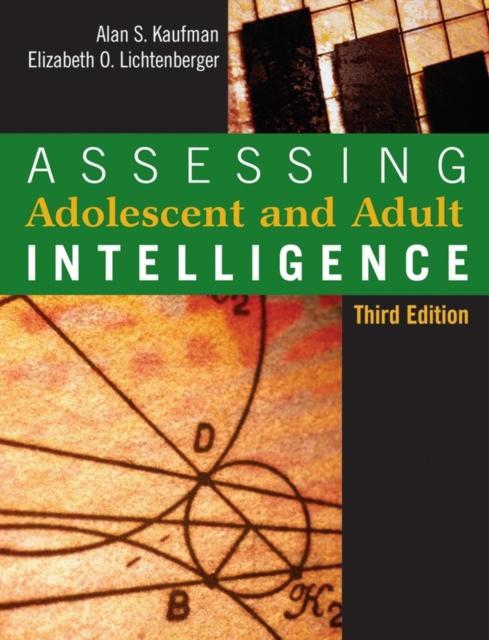
Assessing Adolescent and Adult Intelligence PDF
by Alan S. Kaufman, Elizabeth O. Lichtenberger
Description
The classic text--now updated with a new interpretive approach to the WAIS?-III
Assessing Adolescent and Adult Intelligence, the classic text from Alan Kaufman and Elizabeth Lichtenberger, has consistently provided the most comprehensive source of information on cognitive assessment of adults and adolescents. The newly updated Third Edition provides important enhancements and additions that highlight the latest research and interpretive methods for the WAIS?-III.
Augmenting the traditional "sequential" and "simultaneous" WAIS?-III interpretive methods, the authors present a new approach derived from Cattell-Horn-Carroll (CHC) theory. This approach combines normative assessment (performance relative to age peers) with ipsative assessment (performance relative to the person's own mean level). Following Flanagan and Kaufman's work to develop a similar CHC approach for the WISC?-IV, Kaufman and Lichtenberger have applied this system to the WAIS?-III profile of scores along with integrating recent WAIS?-III literature.
Four appendices present the new method in depth. In addition to a detailed description, the authors provide a blank interpretive worksheet to help examiners make the calculations and decisions needed for applying the additional steps of the new system, and norms tables for the new WAIS?-III subtest combinations added in this approach.
Assessing Adolescent and Adult Intelligence remains the premier resource for the field, covering not only the WAIS?-III but also the WJ III?, the KAIT, and several brief measures of intelligence, as well as laying out a relevant, up-to-date discussion of the discipline. The new, theory-based interpretive approach for the WAIS?-III makes this a vital resource for practicing psychologists, as well as a comprehensive text for graduate students.
Information
-
Download - Immediately Available
- Format:PDF
- Publisher:Wiley
- Publication Date:05/08/2005
- Category:
- ISBN:9780471746881
Information
-
Download - Immediately Available
- Format:PDF
- Publisher:Wiley
- Publication Date:05/08/2005
- Category:
- ISBN:9780471746881






